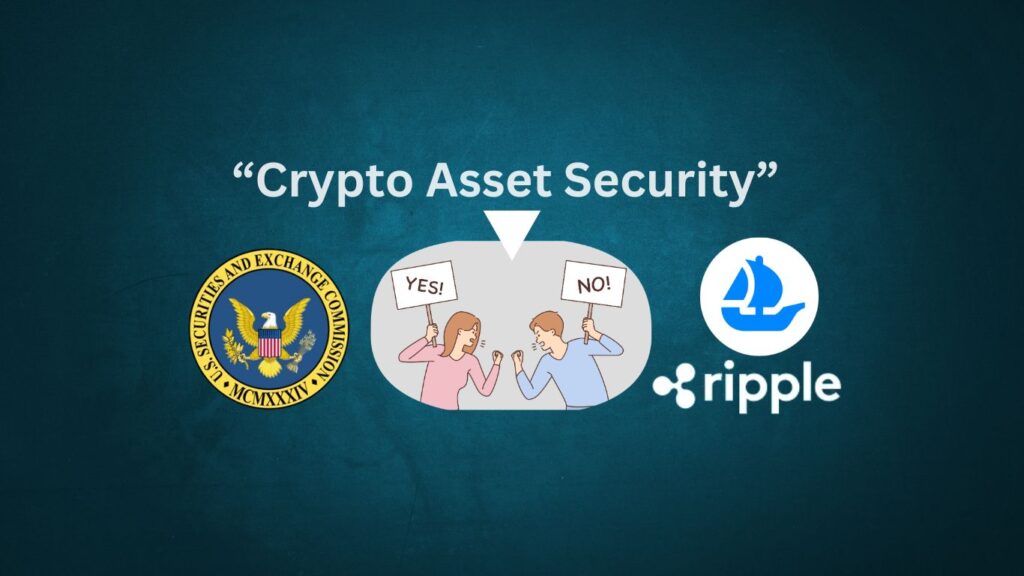The animosity between Ripple Labs and the SEC shows no sign of abating. A recent example of this was Ripple Labs’ chief legal officer’s criticism of the SEC’s frequent use of the phrase crypto asset security without legal ground.
Ripple Accuses SEC of Misusing “Crypto Asset Security”
Ripple’s lawyer Stuart Alderoty blames the SEC is that SEC is trying to “deceive judges” using the term “crypto asset security.” This follows the SEC’s filing of August 30th, warning that it could challenge any plan to pay creditors with stablecoins by FTX, which is under liquidation. The SEC claims that FTX’s portfolio includes “crypto asset securities,” a claim that Alderoty disputes.
Alderoty took an X on Sept. 2 stating “The term’ crypto asset security’ is nowhere to be found in any statute—it’s a fabricated term with no legal basis. The SEC needs to stop trying to deceive judges by using it.”
Stuart Alderoty is not alone in objecting to the term “crypto Asset Security,” In an August update to the SEC’s legal battle with crypto exchange Kraken, the Federal Court for the Northern District of California also expressed concern about the term, stating that the “crypto asset security” concept is “unclear at best and confusing at worst.”
SEC Reverses 40-Year Ruling on Art Galleries
Before the SEC’s August 30th filing, Alderoty criticized the agency’s Wells notice to OpenSea, an art-related NFT marketplace. The SEC claimed the tokens sold on OpenSea might be unregistered securities.
Alderoty argued that the SEC had already ruled on a similar case over 40 years ago. In 1976, the SEC decided that an art gallery didn’t need to register with the SEC, even if buyers had investment motives. This ruling came after a gallery sought clarification about whether selling lithographs and print drawings would violate securities laws.
Alderoty also shared a letter written by a gallery named Art Appraisers of America, representing the artist William Nelson asking for confirmation of whether the selling of lithographs and print drawings violates the laws against selling unregistered securities or not.
In response, the SEC decided that an art gallery didn’t need to register with the SEC indicating selling art with a profit motive doesn’t violate unregistered securities.
OpenSea Response On Wells Notice
OpenSea Co-founder Devin Finzer informed about the Wells notice through a long post on X dated 28 August that the firm received from the SEC threatening to sue them claiming they believe NFTs on the OpenSea platform are securities. He was shocked to receive the notice and expressed dissatisfaction with the SEC’s flip against creators and artists with a commitment to stand against the SEC’s move.
Also Read: The Bitcoin Mining Revenue Dilemma Hits Mining Profit

